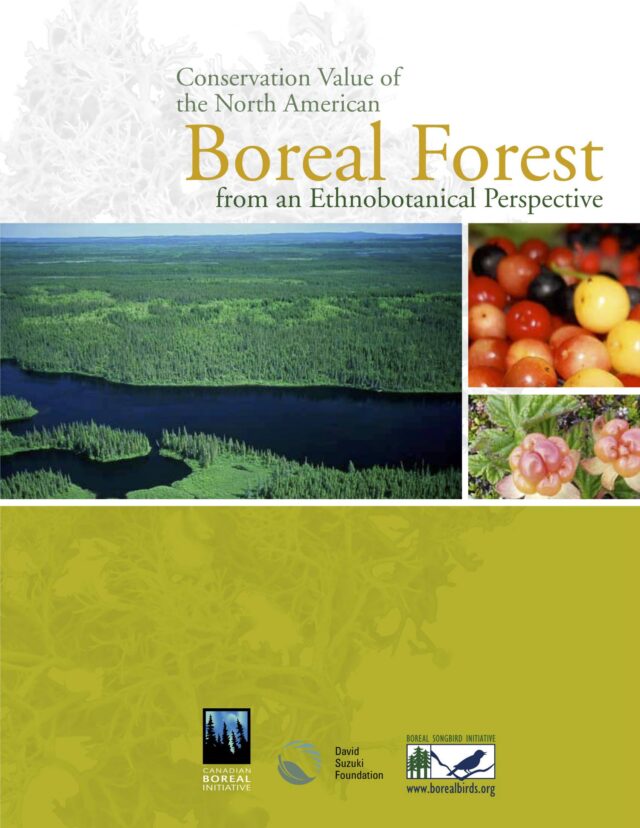Conservation Value of the North American Boreal Forest from an Ethnobotanical Perspective
Published by:
David Suzuki Foundation and partners
Authored by:
Amanda Karst
Partners:
Canadian Boreal Initiative,
Boreal Songbird Initiative
Biodiversity, Environmental rights forests, Indigenous Peoples, eco-assets, community and culture, conservation, species at risk, policy and regulation, land use, human health and wellbeing, Indigenous protected and conserved areas, climate change, natural capital
Traditional knowledge held by Indigenous Peoples in Canada about the boreal forest offers western scientists a vitally important information source. With the boreal forest facing increasing threats from climate change, habitat loss and fragmentation, and invasive species, this knowledge is more important than ever.
Conservation Value of the North American Boreal Forest from an Ethnobotanical Perspective describes the deep botanical and ecological knowledge that Indigenous Peoples have gained over thousands of years of using the boreal forest as grocery, pharmacy, school and spiritual centre. The report notes that the value of the boreal forest to Indigenous Peoples in terms of subsistence (plant and animal) foods alone could reach up to $575.1 million.
The report illustrates how scientists and policymakers often overlook ecological issues until a crisis arises. For example, although few plant species in the boreal region are classified as threatened or endangered under the federal Species at Risk Act or provincial and territorial species legislation, many face widespread human-induced pressures, including habitat loss and climate change.
